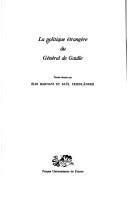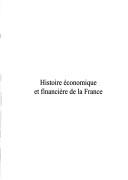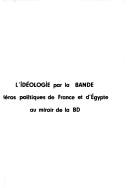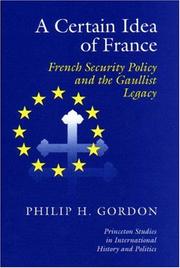| Listing 1 - 9 of 9 |
Sort by
|
Book
ISBN: 3830990367 383094036X Year: 2019 Publisher: Münster Waxmann
Abstract | Keywords | Export | Availability | Bookmark
 Loading...
Loading...Choose an application
- Reference Manager
- EndNote
- RefWorks (Direct export to RefWorks)
Die empirische Bildungsforschung hat in den letzten beiden Jahrzehnten vor allem durch die Schulleistungsforschung, die Forschung zu den Bedingungen von Lernprozessen und gelingendem Unterricht einen bemerkenswerten Aufschwung erfahren und das Wissen in diesen Bereichen deutlich verbessert. Demgegenüber wurde das im letzten Jahrzehnt erweiterte Datenangebot der amtlichen Statistik nur in geringem Umfang für stärker analytisch ausgerichtete Untersuchungen genutzt. Die in dem Beiheft versammelten Beiträge sollen zum einen vielfältige Analysemöglichkeiten mit amtlichen Daten verdeutlichen und zum anderen Anregungen für Forschungsarbeiten mit Daten der amtlichen Statistik geben. Für die datengenerierenden Stellen in den zuständigen Ministerien und in den statistischen Ämtern des Bundes, der Länder und der Kommunen sollen die vorgestellten Untersuchungen den Wert ihrer Daten für wissenschaftliche Untersuchungen unterstreichen und so ein Bewusstsein für die Notwendigkeit eines leichten Datenzugangs schaffen.
Bildungsforschung --- Statistik --- Kommune --- Städtisch --- Datenerhebung --- Leitung --- Schulstatistik --- Infrastruktur --- Schule --- JÜL --- Inklusion --- Empirische Bildungsforschung --- Bildungsmanagement --- JÜL --- Städtisch
Book
ISBN: 9780739142486 0739142488 9780739142509 073914250X 1282561340 9786612561344 Year: 2010 Publisher: Lanham, Md. Lexington Books
Abstract | Keywords | Export | Availability | Bookmark
 Loading...
Loading...Choose an application
- Reference Manager
- EndNote
- RefWorks (Direct export to RefWorks)
This book offers novel perspectives and insights into key themes of French foreign policy in the de Gaulle years (1958-69). Globalizing research on the ideas and impact of le gZnZral, the volume's 13 well-matched essays by leading experts in the field tap into newly available records, ranging from Europe to the US, Asia, Africa, and Latin America. The volume is the first to reassess Charles de Gaulle's foreign policies from a global angle.
Cold War. --- World politics --- Gaulle, Charles de, --- France --- Foreign relations --- Coexistence (World politics) --- Peaceful coexistence --- De Gaulle, Charles, --- Dījawl, --- Dījūl, Shārl, --- De Gollʹ, Sharlʹ, --- Goll, Sharlʼ de, --- Tai, Kao-le, --- Tai-kao-le, --- גול, שארל דה

ISBN: 2130389201 2130699154 2940549516 2130661653 9782130389200 Year: 1985 Publisher: Paris: PUF,
Abstract | Keywords | Export | Availability | Bookmark
 Loading...
Loading...Choose an application
- Reference Manager
- EndNote
- RefWorks (Direct export to RefWorks)
Cette édition numérique a été réalisée à partir d'un support physique, parfois ancien, conservé au sein du dépôt légal de la Bibliothèque nationale de France, conformément à la loi n° 2012-287 du 1er mars 2012 relative à l'exploitation des Livres indisponibles du XXe siècle.
International relations. Foreign policy --- Gaulle, de, Charles --- Gaulle, Charles de, --- France --- Foreign relations --- De Gaulle, Charles, --- Dījawl, --- Dījūl, Shārl, --- De Gollʹ, Sharlʹ, --- Goll, Sharlʼ de, --- Tai, Kao-le, --- Tai-kao-le, --- גול, שארל דה --- Etat | nation --- Charles de Gaulle --- politique internationale

ISBN: 2110936975 2110936991 2821816383 2821828454 2821816456 2821828470 Year: 2003 Volume: *12 Publisher: Institut de la gestion publique et du développement économique
Abstract | Keywords | Export | Availability | Bookmark
 Loading...
Loading...Choose an application
- Reference Manager
- EndNote
- RefWorks (Direct export to RefWorks)
Jean-Marcel Jeanneney appartient incontestablement au premier cercle des grands serviteurs de la République gaullienne et retracer son parcours entre 1958 et 1969, tel que le fait Eric Kocher-Marboeuf dans cette biographie historique, permet d’aborder de nombreux aspects de l’histoire récente de la France. À travers l’action publique de Jean-Marcel Jeanneney, cet ouvrage très documenté traite de questions dont les prolongements sont toujours d’actualité : mutations et reconversions industrielles dont celle des charbonnages, création de l’Union générale des pétroles précurseur d’Elf, lancement du projet de la Rance, réforme des chambres de commerce et d’industrie, relations franco-algériennes dans les premiers mois de l’indépendance, projet de réforme de la politique de coopération, extension de la couverture sociale aux non salariés, ordonnances sur la Sécurité sociale de 1967, réforme hospitalière, négociation de Grenelle, non dévaluation du franc de 1968, échec du référendum sur la régionalisation et la rénovation du Sénat… « L’ouvrage tiré de la thèse d’Eric Kocher-Marbœuf s’avère d’une surprenante richesse pour tous ceux qui interesse à l’histoire de la Ve République [...] par la personnalité même de celui qui en est le personnage principal » Serge Berstein Jean-Marcel Jeanneney undeniably belongs in the inner circle of the great servants of de Gaulle’s Republic and the story of his life from 1958 to 1969, as told by Eric Kocher-Marbœuf in this historical biography, addresses many aspects of France’s recent history. This extremely well-documented book draws on Jean-Marcel Jeanneney’s public action to explore questions with echoes still on the agenda today: industrial change and restructuring, including the coal mines; creation of the Union Générale des Pétroles, the forerunner to Elf; launch of the project to build the Rance Tidal Power Station; reform of the chambers of commerce and industry; French-Algerian relations in the early months of Algeria’s…
Jeanneney, Jean-Marcel --- Gaulle, de, Charles --- Statesmen --- Economists --- Ambassadors --- Regions & Countries - Europe --- History & Archaeology --- France --- Jeanneney, Jean-Marcel, --- Gaulle, Charles de, --- Friends and associates. --- Politics and government --- De Gaulle, Charles, --- Dījawl, --- Dījūl, Shārl, --- De Gollʹ, Sharlʹ, --- Goll, Sharlʼ de, --- Tai, Kao-le, --- Tai-kao-le, --- גול, שארל דה --- histoire économique et financière --- Ve République --- politique française --- Guerre d’Algérie
Book
ISBN: 9782130560388 2130560385 2940549109 Year: 2007 Volume: *21 Publisher: Paris Presses universitaires de France
Abstract | Keywords | Export | Availability | Bookmark
 Loading...
Loading...Choose an application
- Reference Manager
- EndNote
- RefWorks (Direct export to RefWorks)
Prix Jean-Baptiste Duroselle (2007) et prix Association des Anciens de I'Institut (2007) La réconciliation de la France et de l’Allemagne, depuis la fin de la Seconde Guerre mondiale, a transformé l’histoire et constitue un élément-clé de l’Europe d’aujourd’hui. Dans ce long processus de rapprochement mutuel des deux pays, la période allant de la signature du traité franco-allemand du 22 janvier 1963 jusqu’à la démission du général de Gaulle, le 28 avril 1969, prend une signification particulière. Ces années ont été celles de la mise en œuvre d’une coopération pratique et durable, et en même temps de la mise à l’épreuve d’une amitié encore vulnérable. « Outre les relations personnelles de Gaulle-Adenauer, j’ai particulièrement apprécié l’analyse du "rôle des Britanniques dans l’Europe à construire", analyse qui fait montre tout à la fois de pointu dans la recherche des sources et d’originalité dans la présentation. » Pierre Messmer, Premier ministre au moment de l'adhésion britannique au Marché commun. « Benedikt Schoenborn nous donne avec ce livre une somme qui fera date. » Professeur Jean-Paul Bled, Université de Paris-Sorbonne (Paris IV). « Dès les premières pages, j’ai pris à la lecture de cet ouvrage un intérêt et un plaisir qui n’ont fait que s’accroitre au fil des chapitres. » Professeur Bruno Arcidiacono, IHEID. « Le livre de B. Schoenborn est une passionnante étude de politique étrangère au sens classique du terme, conduite avec une grande maîtrise. » Docteur Marie-Noëlle Brand Crémieux, IHEID, in Relations Internationales. « The Standard of research is impressive throughout. ... (it) helps to add yet further complexity to our knowledge of the fraught but fascinating interaction between Western powers in the 1960s. » Professeur Piers Ludlow, LSE, in Cold War History. « Die Geschichte der deutsch-französischen Beziehungen ... gewinnt an Plastizität und Verständlichkeit. » Professeur Wilfried Loth, Universität Duisburg-Essen, in Frankfurter Allgemeine…
Gaulle, Charles de, --- Relations with Germans. --- France --- Germany --- Allemagne --- Foreign relations --- Relations extérieures --- Relations extérieures --- De Gaulle, Charles, --- Dījawl, --- Dījūl, Shārl, --- De Gollʹ, Sharlʹ, --- Goll, Sharlʼ de, --- Tai, Kao-le, --- Tai-kao-le, --- גול, שארל דה --- relations internationales --- traité franco-allemand --- Charles de Gaulle --- traités
Book
ISBN: 1442241209 9781442241206 9781442241190 1442241195 Year: 2014 Publisher: Lanham
Abstract | Keywords | Export | Availability | Bookmark
 Loading...
Loading...Choose an application
- Reference Manager
- EndNote
- RefWorks (Direct export to RefWorks)
This book compares Churchill and de Gaulle as they thought, spoke, and acted through two world wars and the subsequent Cold War. Although the world is very different now, this nuanced history shows how thinking along with these giants of the twentieth century as they responded to the crises of their time will make us more thoughtful citizens today.
Geopolitics --- World politics --- History --- Churchill, Winston, --- Gaulle, Charles de, --- De Gaulle, Charles, --- Dījawl, --- Dījūl, Shārl, --- De Gollʹ, Sharlʹ, --- Goll, Sharlʼ de, --- Tai, Kao-le, --- Tai-kao-le, --- גול, שארל דה --- Churchill, Winston --- Spencer-Churchill, Winston Leonard --- Churchill, Winston Leonard Spencer --- Churchill, Winston Spencer --- Churchill, Winston S. --- Great Britain --- France --- Foreign relations --- Cherchillʹ, Vinston, --- Churchill, Winston Leonard Spencer, --- Chʻiu-chi-êrh, --- Warden, --- Chŭrchil, Uinstŭn, --- Ts'urts'il, Ṿinsṭon, --- Cherchillʹ, Uinston, --- צ׳רצ׳יל, וינסטון --- צ'רציל, וינסטון ס., --- צ'רצ'יל, וינסטון, --- تشرشل، ونستون، --- Čʻurčʻili, Uinston, --- Spencer Churchill, Winston,
Book
ISBN: 3319656422 3319656414 Year: 2018 Publisher: Cham : Springer International Publishing : Imprint: Palgrave Macmillan,
Abstract | Keywords | Export | Availability | Bookmark
 Loading...
Loading...Choose an application
- Reference Manager
- EndNote
- RefWorks (Direct export to RefWorks)
This book explores Charles De Gaulle's use and strict control of television between 1958 and 1969, highlighting the association between charismatic power and television with regards to legitimizing the Gaullist leadership and determining an evolution towards presidentialism during the Fifth Republic. A protagonist of European political history of the twentieth century, Charles de Gaulle was a pioneer in the use of mass media: in the Second World War he had earned the nickname of Général-micro due to his reliance on radio communication; in 1958 he then started an substantive and fruitful use of television, which some of his opponents labelled as ‘telecracy’. From difficult beginnings, where he followed the advice of publicity and communication experts, through his masterful TV appearances during the dramatic moments of the Algerian War, to the presidential campaign of 1965 and the crisis of May 1968, the author paints a compelling fresco of de Gaulle as the first TV leader in contemporary European history. The book will appeal to students and scholars interested in the fields of French politics, political communication and political leadership. .
Television in politics --- Television --- Communication in politics --- History --- Censorship --- Gaulle, Charles de, --- France --- Politics and government --- Political communication --- Political science --- Radio vision --- TV --- Artificial satellites in telecommunication --- Electronic systems --- Optoelectronic devices --- Telecommunication --- Astronautics --- Political broadcasting (Television) --- Politics, Practical --- Optical communication systems --- De Gaulle, Charles, --- Dījawl, --- Dījūl, Shārl, --- De Gollʹ, Sharlʹ, --- Goll, Sharlʼ de, --- Tai, Kao-le, --- Tai-kao-le, --- גול, שארל דה --- France—Politics and government. --- Political communication. --- World politics. --- Political leadership. --- Europe-Politics and government. --- French Politics. --- Political Communication. --- Political History. --- Political Leadership. --- European Politics. --- Leadership --- Colonialism --- Global politics --- International politics --- Political history --- World history --- Eastern question --- Geopolitics --- International organization --- International relations --- Europe—Politics and government. --- Communication in politics.

ISBN: 2905838574 2905838086 Year: 2013 Publisher: Le Caire : CEDEJ - Égypte/Soudan,
Abstract | Keywords | Export | Availability | Bookmark
 Loading...
Loading...Choose an application
- Reference Manager
- EndNote
- RefWorks (Direct export to RefWorks)
Comic books, strips, etc. --- Political aspects --- Ramses --- Nasser, Gamal Abdel, --- Gaulle, Charles de, --- Mouse, Mickey --- Comic strips --- Comics --- Funnies --- Manga (Comic books, strips, etc.) --- Manhua (Comic books, strips, etc.) --- Manhwa (Comic books, strips, etc.) --- Serial picture books --- Caricatures and cartoons --- Wit and humor, Pictorial --- ʻAbd al-Nāṣir, Jamāl, --- Abdel Nasser, Gamal, --- Abdolnaser, Jamal, --- Abdul Nasser, Gamal, --- Jamal Abdolnaser, --- Naser, G. A., --- Naser, Gamalʹ Abdelʹ, --- Nasir, Gamal Abdul, --- עבד אל־נאצר, ג׳מאל --- اصر، جمال عبد ال --- جمال عبد الناصر --- جمال عبد الناصر، --- عبد الناصر، جمال --- عبد الناصر، جمال، --- عبد الناصر، جنال --- عبد ناصر، جمال --- عبدالناصر، جمال --- عبدالناصر، جمال، --- ماصر، جمال عبدال --- ناصر، جمال --- ناصر، جمال عبد --- ناصر، جمال عبد ، --- ناصر، جمال عبد ال --- ناصر، جمال عبد ال، --- ناصر، جمال عبد، --- ناصر، جمال عبدال --- ناصر، جمال. --- ناصر، جمل عبدال --- نسر، گمل ابدل --- نصر.جمال عبدال --- Rameses --- Osymandyas, --- Ramesses --- Ramessu --- Ramses, --- Ramesse --- Mickey Mouse --- De Gaulle, Charles, --- Dījawl, --- Dījūl, Shārl, --- De Gollʹ, Sharlʹ, --- Goll, Sharlʼ de, --- Tai, Kao-le, --- Tai-kao-le, --- גול, שארל דה --- Osymandyas --- Manhua (Comic books) --- Manhwa (Comic books) --- image --- Égypte --- culture populaire --- occidentalisation --- Gamal Abd al Nasser --- Charles de Gaulle --- idéologie --- bande dessinée

ISBN: 0691086478 9786612751691 140082091X 1282751697 1400811805 9781400811809 9781400820917 9780691086477 140080292X 9781400802913 1400802911 9781282751699 Year: 1993 Publisher: Princeton, N.J. : Princeton University Press,
Abstract | Keywords | Export | Availability | Bookmark
 Loading...
Loading...Choose an application
- Reference Manager
- EndNote
- RefWorks (Direct export to RefWorks)
As France begins to confront the new challenges of the post-Cold War era, the time has come to examine how French security policy has evolved since Charles de Gaulle set it on an independent course in the 1960's. Philip Gordon shows that the Gaullist model, contrary to widely held beliefs, has lived on--but that its inherent inconsistencies have grown more acute with increasing European unification, the diminishing American military role in Europe, and related strains on French military budgets. The question today is whether the Gaullist legacy will enable a strong and confident France to play a full role in Europe's new security arrangements or whether France, because of its will to independence, is destined to play an isolated, national role.Gordon analyzes military doctrines, strategies, and budgets from the 1960's to the 1990's, and also the evolution of French policy from the early debates about NATO and the European Community to the Persian Gulf War. He reveals how and why Gaullist ideas have for so long influenced French security policy and examines possible new directions for France in an increasingly united but potentially unstable Europe.
COLD WAR -- 327 --- Gaulle, de, Charles --- Cold War. --- Gaulle, Charles de, --- Influence. --- Military leadership. --- France --- Europe --- Foreign relations --- Military policy. --- Relations --- De Gaulle, Charles, --- Dījawl, --- Dījūl, Shārl, --- De Gollʹ, Sharlʹ, --- Goll, Sharlʼ de, --- Tai, Kao-le, --- Tai-kao-le, --- גול, שארל דה --- Council of Europe countries --- Pʻŭrangsŭ --- Frankrig --- Francja --- Frant︠s︡ii︠a︡ --- Prantsusmaa --- Francia (Republic) --- Tsarfat --- Tsorfat --- Franḳraykh --- Frankreich --- Fa-kuo --- Faguo --- Франция --- French Republic --- République française --- Peurancih --- Frankryk --- Franse Republiek --- Francland --- Frencisc Cynewīse --- فرنسا --- Faransā --- Franza --- Republica Franzesa --- Gallia (Republic) --- Hyãsia --- Phransiya --- Fransa --- Fransa Respublikası --- Franse --- Францыя --- Frantsyi︠a︡ --- Французская Рэспубліка --- Frantsuzskai︠a︡ Rėspublika --- Parancis --- Pransya --- Franis --- Francuska --- Republika Francuska --- Bro-C'hall --- Френска република --- Frenska republika --- França --- República Francesa --- Pransiya --- Republikang Pranses --- Γαλλία --- Gallia --- Γαλλική Δημοκρατία --- Gallikē Dēmokratia --- فرانسه --- Farānsah --- צרפת --- רפובליקה הצרפתית --- Republiḳah ha-Tsarfatit --- פראנקרייך --- 法国 --- 法蘭西共和國 --- Falanxi Gongheguo --- フランス --- Furansu --- フランス共和国 --- Furansu Kyōwakoku --- Francija --- Ranska --- Frankrike --- World politics --- France (Provisional government, 1944-1946) --- Eastern Hemisphere --- Eurasia --- 프랑스 --- Falanxi --- Fa-lan-hsi --- 法蘭西 --- Frankrijk --- Frant︠s︡ --- Франц --- Frant︠s︡ Uls --- Франц Улс
| Listing 1 - 9 of 9 |
Sort by
|

 Search
Search Feedback
Feedback About UniCat
About UniCat  Help
Help News
News